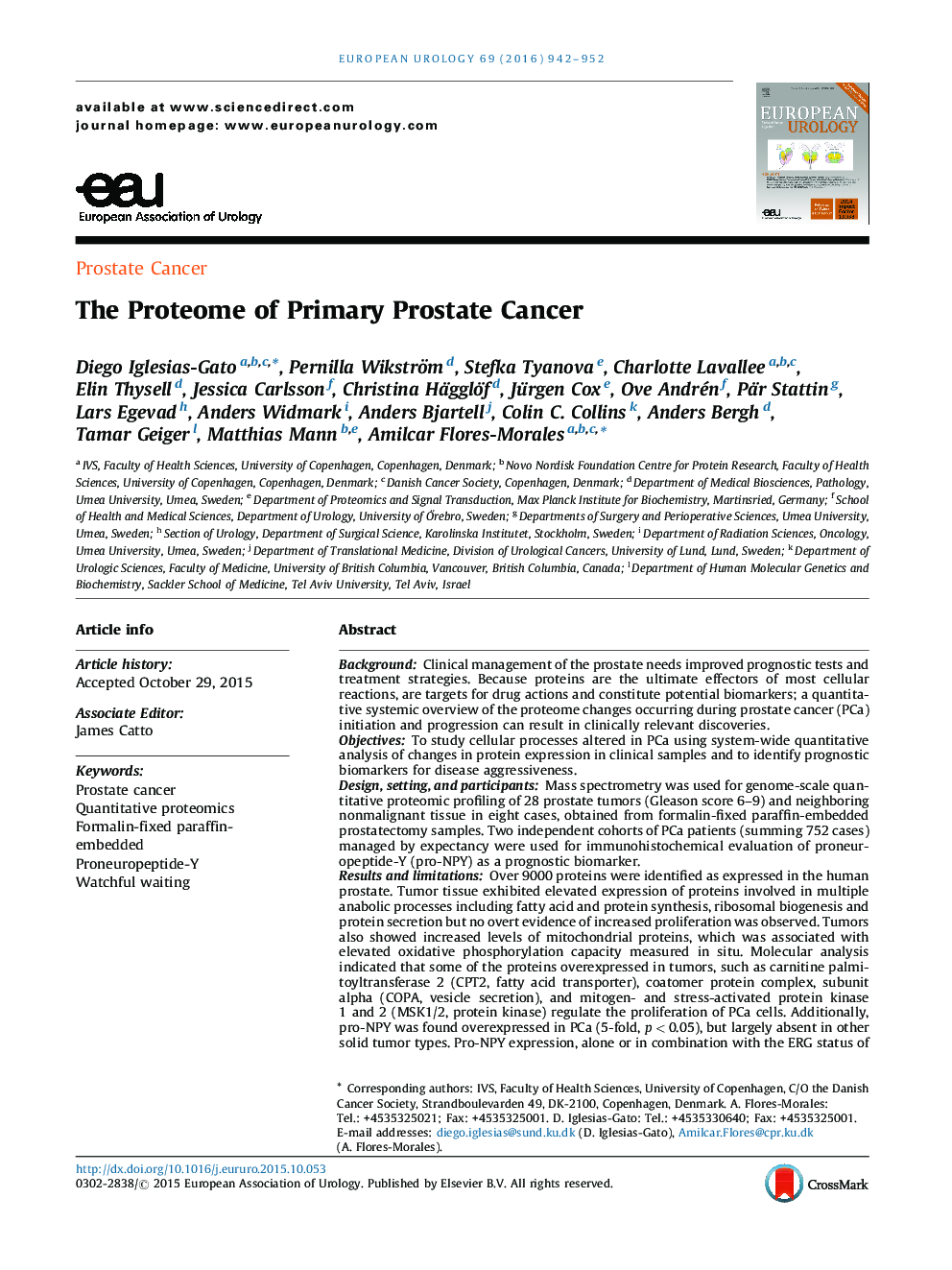| کد مقاله | کد نشریه | سال انتشار | مقاله انگلیسی | نسخه تمام متن |
|---|---|---|---|---|
| 6176127 | 1253043 | 2016 | 11 صفحه PDF | دانلود رایگان |
BackgroundClinical management of the prostate needs improved prognostic tests and treatment strategies. Because proteins are the ultimate effectors of most cellular reactions, are targets for drug actions and constitute potential biomarkers; a quantitative systemic overview of the proteome changes occurring during prostate cancer (PCa) initiation and progression can result in clinically relevant discoveries.ObjectivesTo study cellular processes altered in PCa using system-wide quantitative analysis of changes in protein expression in clinical samples and to identify prognostic biomarkers for disease aggressiveness.Design, setting, and participantsMass spectrometry was used for genome-scale quantitative proteomic profiling of 28 prostate tumors (Gleason score 6-9) and neighboring nonmalignant tissue in eight cases, obtained from formalin-fixed paraffin-embedded prostatectomy samples. Two independent cohorts of PCa patients (summing 752 cases) managed by expectancy were used for immunohistochemical evaluation of proneuropeptide-Y (pro-NPY) as a prognostic biomarker.Results and limitationsOver 9000 proteins were identified as expressed in the human prostate. Tumor tissue exhibited elevated expression of proteins involved in multiple anabolic processes including fatty acid and protein synthesis, ribosomal biogenesis and protein secretion but no overt evidence of increased proliferation was observed. Tumors also showed increased levels of mitochondrial proteins, which was associated with elevated oxidative phosphorylation capacity measured in situ. Molecular analysis indicated that some of the proteins overexpressed in tumors, such as carnitine palmitoyltransferase 2 (CPT2, fatty acid transporter), coatomer protein complex, subunit alpha (COPA, vesicle secretion), and mitogen- and stress-activated protein kinase 1 and 2 (MSK1/2, protein kinase) regulate the proliferation of PCa cells. Additionally, pro-NPY was found overexpressed in PCa (5-fold, p < 0.05), but largely absent in other solid tumor types. Pro-NPY expression, alone or in combination with the ERG status of the tumor, was associated with an increased risk of PCa specific mortality, especially in patients with Gleason score ⤠7 tumors.ConclusionsThis study represents the first system-wide quantitative analysis of proteome changes associated to localized prostate cancer and as such constitutes a valuable resource for understanding the complex metabolic changes occurring in this disease. We also demonstrated that pro-NPY, a protein that showed differential expression between high and low risk tumors in our proteomic analysis, is also a PCa specific prognostic biomarker associated with increased risk for disease specific death in patients carrying low risk tumors.Patient summaryThe identification of proteins whose expression change in prostate cancer provides novel mechanistic information related to the disease etiology. We hope that future studies will prove the value of this proteome dataset for development of novel therapies and biomarkers.
Journal: European Urology - Volume 69, Issue 5, May 2016, Pages 942-952
